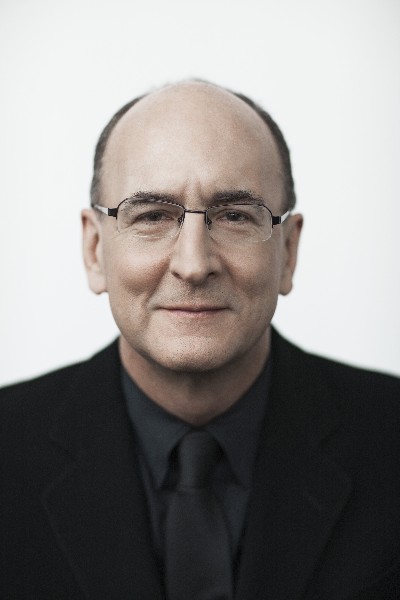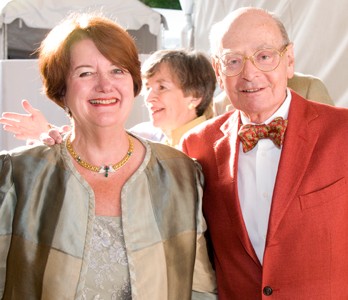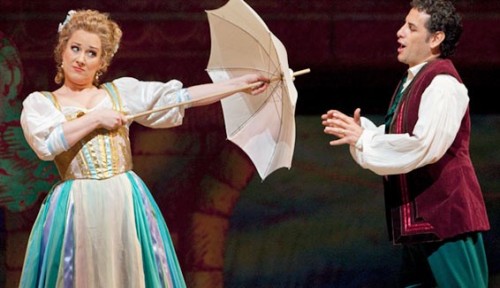Peter Gelb and the Met Get More Bad News
76 Year Old Opera News Stops Reviewing
By: Susan Hall - May 22, 2012
During its 76 years the prestigious music publication Opera News (with a circulation of 100,000) and the Metropolitan Opera, just one of the companies that it covers, appeared to be joined at the hip. Subscriptions to the magazine were a gift to the Met's season ticket holders.
Now in an article titled "Latest Met Aria:Bad Opera is No News" by Daniel J. Wakin in the New York Times he reports on the equivalent of a divorce. In the face of ever mounting criticism of the new productions and artistic director of the Met under general manager, Peter Gelb, for the most part the Times has been a friendly port in the storm.
As a boy Gelb dined each evening with the managing editor of the New York Times, his dad. He learned how newspapers operated, and ways to get the best positive coverage.
Here is part of his entry in Oxford Music Online: "American opera manager and record executive. Son of Arthur Gelb, a former managing editor of the New York Times, he began working in the office of impresario Sol Hurok at the age of 17, later becoming Vladimir Horowitz’s artist manager. In 1978 he was hired by the Boston Symphony Orchestra to be director of publicity. Allegations later surfaced concerning superfluous press coverage for Gelb’s clients in the Times during his father’s tenure there."
Gelb continues to have little regard for the press, except the media he influences. He calls the Times in when he wants to release a story. He does have cause for concern when Times critic Zachary Wolfe enters the house.
What is Mr. Gelb afraid of? Do board members read reviews? In a long discussion with a board member who requested anonymity, it became apparent that Gelb's modus operandi is coming under scrutiny.
Gelb is not forthcoming about Met finances, but his assistant manager artistic, Sarah Billinghurst, in an interview in New Zealand, reported that the Met earns about half its income at the box office. There is a goal of some 82-83% in ticket sales for each production. A small amount comes in from touring and recordings with 40% in tax-deductible contributions from individuals, such as billionaire Sid Bass, who gave the Met $25 million five years ago. The company also receives funds through foundations and companies.
The Met has an annual budget said to be in excess of $300 million. New productions can cost more than $2 million, with over 450 performers. Behind the scenes are a staff of producers, directors, stage designers, costume designers, craftspeople, voice coaches and stagehands.
"We do have big extravagant productions," Bilinghurst, the highly regarded second in command whose tenure precedes Gelb's, told the reporter in New Zealand. "For operas such as Carmen that we do a lot, we need to have a production that will last about 20 years. For something that is not as popular, that we wouldn’t put on so often, we wouldn’t have such a high budget.”
One evening this spring in the run of L'Elisir d'Amore, the Met's season opener next fall, allegedly over half the Met costume department were given tickets (100 plus) to paper the house. Individuals close to ticket sales report a declining audience. The Met continues to sell seats to tourists. In response to increasingly negative responses the Met's primary audience is eroding.
Billinghurst is married to board member Howard Solomon who runs Forest Laboratories. The company has encountered conflicts with the FDA regarding its marketing of the anti-depressant, Celexa. Dealing with this and other business issues Solomon, aged 84, has been distracted from focusing on Metropolitan Opera.
Philanthropists and business leaders who serve on the boards of arts organizations often have difficulty transferring the skills required to succeed in managing the arts. While a board may focus on the bottom line they often lack the aesthetic insights to cope with a general manager whose understanding of music and the specifics of opera are questionable. The board has yet to respond to Gelb's ever more problematic relationships with the media. The split with Opera News is the latest example of media conflicts.
Recently there was a widely reported conflict with a critical blog posting by WQXR. Under pressure from Gelb it was taken down. Following a devastating piece in the New Yorker by Alex Ross, Gelb invited Anthony Tommasini of the Times for an exclusive interview seen by many as damage control. But Gelb is unable to lobby or silence all of his critics.
Comments in the April and May issues of Opera News are particularly devastating and insightful.
In a review of the new production of Wagner's Ring Cycle Fred Cohn wrote “The physical scale of Robert Lepage’s ‘Götterdämmerung’ may have been immense, but its ambitions seemed puny."
Brian Kellow, the features editor wrote “The public is becoming more dispirited each season by the pretentious and woefully misguided, misdirected productions foisted on them.”
In response to this devastating coverage, terminating decades of familial relationship with Opera News, Gelb may well be muttering the equivalent of "Et tu Brute?"
The ever increasing negativity from leading music critics and publications begs the question of when the board will act to evalute Gelb's performance and put its house in order.
Postscript:
from the Metropolitan Opera 3:55 PM
Lee Abrahamian, Director of Communications
May 22, 2012
Opera News Will Continue to Review Metropolitan Opera Productions
In view of the outpouring of reaction from opera fans about the recent decision to discontinue Met performance reviews in Opera News, the Met has decided to reverse this new editorial policy. From their postings on the internet, it is abundantly clear that opera fans would miss reading reviews about the Met in Opera News. Ultimately, the Met is here to serve the opera-loving public and has changed its decision because of the passionate response of the fans.
The Met and the Met Opera Guild, the publisher of Opera News, have been in discussions about the role of the Guild and how its programs and activities can best fulfill its mission of supporting the Metropolitan Opera. These discussions have included the role of reviews in Opera News, and whether they served that mission. While the Met believed it did not make sense for a house organ that is published by the Guild and financed by the Met to continue to review Met productions, it has become clear that the reviews generate tremendous excitement and interest and will continue to have a place in Opera News.




